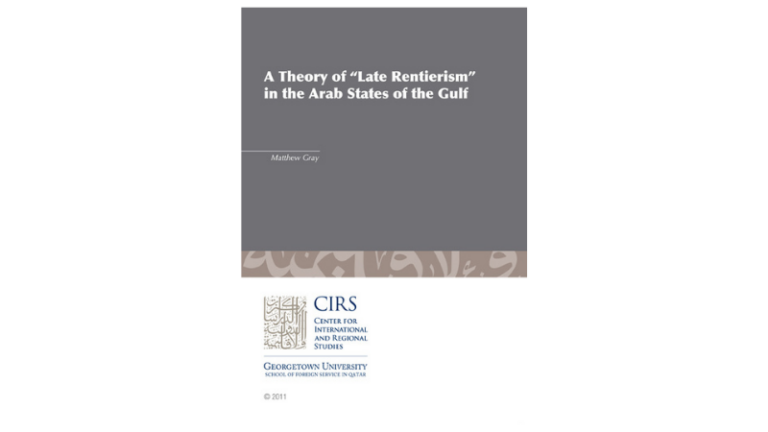A Theory of “Late Rentierism” in the Arab States of the Gulf

To cite this publication: Matthew Gray, “A Theory of ‘Late Rentierism’ in the Arab States of the Gulf,” CIRS Occasional Paper no. 7 (Doha, Qatar: Center for International and Regional Studies, 2011).
Rentier state theory (RST), which seeks to explain the impacts of external payments—or rents—on state-society relations and governance, has been in wide usage for over two decades, and is still routinely cited by scholars writing on the Gulf or other parts of the world. Its tenets are widely—if by no means unanimously— accepted, and retain a strong validity at the broader level. However, RST has not adapted enough to explain the dramatic changes in the political economies of the Gulf in the past two decades or so, including the responses of Dubai, Bahrain, and more recently Qatar and Abu Dhabi, to globalization, new technologies, freer trade and investments, social changes, and development imperatives. It is argued here that a new phase of RST—“late rentierism”—should be applied to the wealthy Arab Gulf states. The case for late rentierism is made with an emphasis on the shortcomings or oversimplifications of other rentier approaches. This study also describes and explains late rentierism through a discussion and elucidation of its major features and characteristics, including how these vary, or not, from those of other rentier explanations.